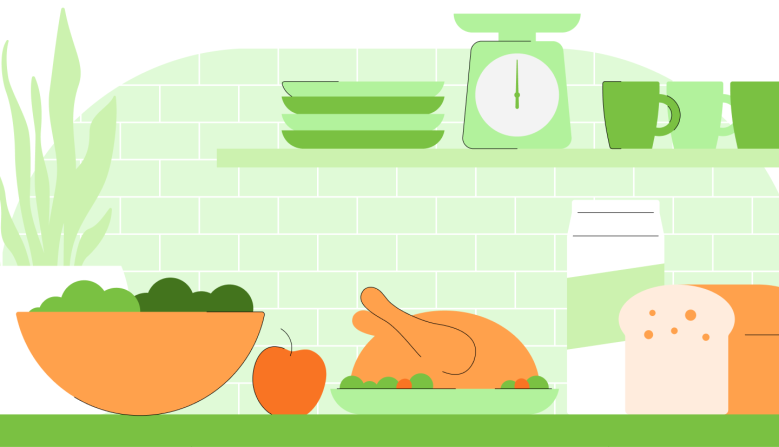10 Habits to Establish a Healthy Evening Routine



Getting enough sleep is crucial to a healthy lifestyle. When you’re not getting quality sleep, there are consequences. Though we aren’t totally sure exactly why we need shut-eye every night, it can help with skin health, heart health, focus, memory, weight loss and more. However, it can be hard to get enough sleep. Whether it’s anxiety, a never-ending to-do list or scrolling on our phone for hours before bed, so many things can keep us from being well rested.
Research has shown that when the stress hormone cortisol, is elevated, it can lead to lower-quality sleep, and this problem can compound over time. Winding down in the evenings can help you lower stress and get into the right headspace for a rejuvenating night’s sleep. To help you unwind in the evenings, we put together a list of habits that can help you relax and prepare for bed. Try these habits to establish an evening routine that will leave you sleeping better, rejuvenated and ready for whatever the next day has ahead.
1. Stay hydrated.
There are a slew of health benefits of drinking water, from helping keep your heart healthy to improving your skin. Dehydration has been proven to negatively affect mood and promote stress in men and women. When you are stressed, you don’t sleep as well. Instead of sipping caffeine all day and wine all night, focus on meeting your water intake (FYI, caffeinated beverages count toward your water intake, but too much caffeine isn’t great for sleep).
2. Cut p.m. caffeine.
It’s 2 p.m. You are groggy and in desperate need of a pick-me-up, so you start brewing another pot of coffee. We’ve all been there. But if you’re trying to boost your sleep quality, you may need to cut down on the afternoon and evening caffeine. Caffeine has a half-life of around five hours, meaning the cup you drank at 4 p.m. could still be in your system at 9 p.m. Instead, try an herbal tea or seltzer for a caffeine-free afternoon drink.
3. Have a healthy meal.
There are so many reasons to eat a healthy dinner on a regular basis. Enjoying a delicious, healthy meal can help nourish your body, steady your blood sugar and set you up for sleep success, especially if you have diabetes. Meals with complex carbs, protein and veggies are especially helpful in keeping your energy levels steady and preventing blood sugar spikes and crashes. Try to finish eating at least two hours before bed to help you digest before lying down.
4. Watch the alcohol.
Having a drink, especially before bed, can lead to not-so-restful sleep. Even though alcohol might make you drowsy, it can negatively impact the quality of your sleep. Alcohol can make our blood sugar plummet, causing us to wake up or have shallow sleep in the middle of the night. It can also lead to dehydration. If you are going to have a drink, move it earlier in the night and hydrate with water closer to bedtime.
5. Keep it consistent.
Our circadian rhythms determine our sleep-and-wake cycle, and our bodies love consistency. Trying to get to bed and to wake up at similar times each day will help put your body on a sleep schedule so you feel ready for bed and refreshed in the morning. Be sure to give yourself plenty of time to wind down at night before you want to be asleep, especially when you are starting out.
6. Step away from screens.
The light given off by the screens of our smartphones and TVs can suppress the production of melatonin, a hormone that helps with sleep. Artificial light can also shift our circadian rhythms and keep us up later, even after we log off. Shut down electronics at least 30 minutes before bed to let your brain relax and melatonin levels rise.
7. Plan ahead.
Doing a little bit of planning for tomorrow or tidying up at night can help us feel prepared and accomplished going into a new day. List-loving people, rejoice! It can cut down on morning stress when you are short on time, too. Keep it light and simple, so as to not pile on any stress right before bed.
8. Stretch a little.
Vigorous exercise boosts your energy and gets your blood pumping, which is not ideal right before bed. Something more relaxed, like light yoga, can have the opposite effect. Stretching helps activate the parasympathetic nervous system, which triggers relaxation, making it a great bedtime ritual to wind down.
9. Practice gratitude and reflect.
Stress can keep you up at night, and practicing gratitude can help. This can be writing down three things you are grateful for or following a guided meditation, which has plenty of its own health benefits. Reflecting on your day and intentionally being thankful for what you have can boost your mood and put you in a good mental state to rest.
10. Keep it clean.
Sleep hygiene goes hand-in-hand with physical hygiene. Brushing your teeth, washing your face or even showering before bed can be soothing and help you feel refreshed and ready to sleep.
Bottom line
It can be hard to get quality sleep for lots of reasons, but stressing too much about sleep can make it worse. These simple habits can help you build a healthy evening routine that helps keep you from tossing and turning. Sleep has many benefits including improved mental health, immunity and more, so use these tips to set yourself up for success and feel more rested tomorrow.
© Meredith Operations Corporation. All rights reserved. Used with permission.

















